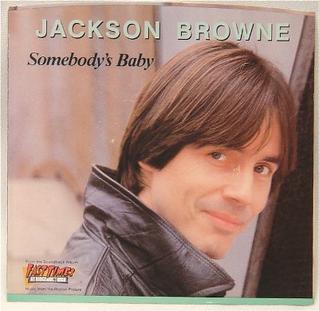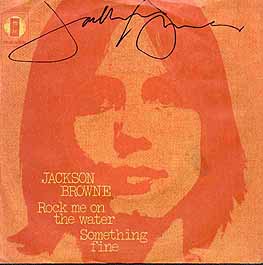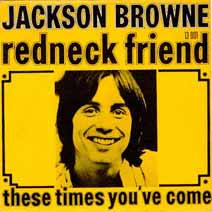
CSN is the third studio album by Crosby, Stills & Nash, released on Atlantic Records on June 17, 1977. It is the group's second studio release in the trio configuration. It peaked at No. 2 on the Billboard Top Pop Albums chart; two singles taken from the album, Nash's "Just a Song Before I Go" and Stills' "Fair Game" charted on the Billboard Hot 100. It is currently the trio configuration's best selling record, outselling 1969's Crosby, Stills & Nash by 200,000 copies. It has been certified quadruple platinum by RIAA.

"A Horse with No Name" is a song by American folk rock trio America. Written by Dewey Bunnell, it was released on the Warner Bros. label, in late 1971 in Europe and early 1972 in the United States. The song was met with commercial success and topped charts in Canada, Finland, and the United States. It reached number 3 in the UK singles chart. It was certified gold by the Recording Industry Association of America (RIAA) on March 24, 1972. The song was quickly added to a rerelease of the bands' debut studio album, America. The song is a staple of the group's discography and one of their most popular.

"Stay" is a doo-wop song written by Maurice Williams and first recorded in 1960 by Williams with his group the Zodiacs. Commercially successful versions were later also issued by the Hollies, the Four Seasons and Jackson Browne.

"Deacon Blues" is a song written by Walter Becker and Donald Fagen in 1976 and recorded by their group Steely Dan on their 1977 album Aja. It peaked at number 19 on the Billboard charts and number 17 on the U.S. Cash Box Top 100 in June 1978. It also reached number 40 on the Easy Listening chart. In Canada, it peaked at number 14, a position it occupied for two weeks, and number 20 Adult Contemporary. In 2021, it was ranked No. 214 on Rolling Stone magazine's list of the "500 Greatest Songs of All Time".

"Yes, I'm Ready" is a song by Barbara Mason from her album Yes, I'm Ready (1965). It has been covered by numerous artists, and was a hit single for Teri DeSario and K.C. when they recorded a duet version in 1980.

"Rock Your Baby" is the debut single by American singer George McCrae. Written and produced by Harry Wayne Casey and Richard Finch of KC and the Sunshine Band, "Rock Your Baby" became an early landmark recording of disco. It was the only international hit for McCrae. The song spent two weeks at number one on the Billboard Hot 100 in July 1974, and three weeks at number one on the UK Singles Chart that same month. The song also topped the Billboard R&B chart. The single has sold over 11 million copies, making it one of fewer than forty singles to have sold 10 million physical copies worldwide.

"Take It Easy" is the debut single by the American rock band Eagles, written by Jackson Browne and Eagles band member Glenn Frey, who also provides lead vocals. It was released on May 1, 1972, and peaked at No. 12 on the Billboard Hot 100 chart on July 22, 1972. It was also the opening track of the band's eponymous debut album and has become one of their signature songs, included on all of their live and compilation albums. It is listed as one of The Rock and Roll Hall of Fame's 500 Songs that Shaped Rock and Roll.

"(Your Love Keeps Lifting Me) Higher and Higher" is an R&B song written by Gary Jackson, Raynard Miner, and Carl Smith. It was recorded by Jackie Wilson for his album Higher and Higher (1967), produced by Carl Davis, and became a Top 10 pop and number one R&B hit.

"Running on Empty" is a song by American singer-songwriter Jackson Browne. It is the title track of his 1977 live album of the same name, recorded at a concert at Merriweather Post Pavilion in Columbia, Maryland, on August 27, 1977. A number 11 hit on the US Billboard Hot 100 when it was released as a single, it spent seventeen weeks on the chart after debuting on February 11, 1978 at position 72. Rolling Stone ranked it at number 496 on its list of "The 500 Greatest Songs of All Time" in 2010 and number 492 in 2004 and it is one of Browne's signature songs. "Running on Empty" was most popular in Canada, where it spent two weeks at number four.

"Somebody's Baby" is a song written by Jackson Browne and Danny Kortchmar and recorded by Browne for the 1982 Fast Times at Ridgemont High movie soundtrack. Reaching No. 7 on the US Billboard Hot 100 after debuting at No. 73 on July 31, 1982, the track would be Browne's last top ten hit, as well as the highest-charting single of his career, spending a total of nineteen weeks on the chart.

"Doctor, My Eyes" is a 1972 song written and performed by Jackson Browne and included on his debut album Jackson Browne. Featuring a combination of an upbeat piano riff coupled with lyrics about feeling world-weary, the song was a surprise hit, reaching number 8 on the Billboard Hot 100 in spring 1972, after debuting on the chart at number 80. Browne would not see the chart's Top 10 again until 1982's soundtrack hit "Somebody's Baby", although "Running on Empty" just missed the Top 10, reaching number 11. Billboard ranked "Doctor My Eyes" as the No. 92 song for 1972. In Canada, the song peaked at number four.

"The Long Run" is a song written by Don Henley and Glenn Frey and recorded by the Eagles. The sound of the song is viewed as a tribute to the Stax / Memphis rhythm and blues sound. It was the title track of their album The Long Run and was released as a single in November 1979. It reached No. 8 on the U.S. Billboard Hot 100 in early 1980. It was the second of three singles released from The Long Run album, preceded by "Heartache Tonight," which reached No. 1 on the Billboard Hot 100 in November 1979, and followed by "I Can't Tell You Why," which also reached No. 8 on the Billboard Hot 100, in the spring of 1980.

"Lawyers in Love" is the first single and title track of Jackson Browne's 1983 album of the same name, Lawyers in Love. Though not as successful as Browne's previous single "Somebody's Baby", nonetheless at #13 it became Browne's fourth-highest peaking hit on the Hot 100 as well as his final top 20 hit on the American pop charts, while in Canada peaking on RPM at #13. Browne wrote most of the songs on the album, including the title track.

"You Love the Thunder" is a song written and performed by American singer-songwriter Jackson Browne from his 1977 live album, Running on Empty, recorded at a concert at Garden State Arts Center in Holmdel, New Jersey, on September 6, 1977. Released as the third single a full year after the album came out, it only reached #109 on Billboards Bubbling Under Hot 100 Singles chart, though it received increased Album-Oriented Rock airplay. The B-side of the U.S. single was "The Road"; however, the B-side for the British single was "Cocaine".

"Here Come Those Tears Again" is a song co-written and performed by American singer-songwriter Jackson Browne and included on his 1976 album The Pretender. Released as a single, it reached #23 one year to the week after the death of Browne's wife, Phyllis Major, spending nine weeks on the chart, after entering the Billboard Hot 100 on February 5, 1977, at position #64, the highest debut of the week. It also reached #15 on the Billboard Adult Contemporary chart. The single was the eighth-highest charting of his Hot 100 career. It was also released as a single in the United Kingdom, Germany and Japan.

"Rock Me on the Water" is a song written and performed by American singer-songwriter Jackson Browne, released as the second single from his 1972 debut album, Jackson Browne, following the No. 7 success of Browne's debut single, "Doctor, My Eyes". Browne's version reached No. 48 on Billboard's September 23, 1972, Hot 100 chart, spending nine weeks on that chart after debuting at No. 73 on August 5, 1972. It was also released as a single in Canada, Germany and Japan, and as a promotional single in the United Kingdom.

"Redneck Friend" is a song written and performed by American singer-songwriter Jackson Browne, released as the first single from his 1973 album For Everyman, and notable for its double entendre lyrics and guest appearances by Glenn Frey and Elton John, as well as the first appearance of David Lindley on a Jackson Browne single. The song reached number 85 on Billboard's October 20, 1973, Hot 100 chart, spending 10 weeks on that chart after debuting at number 99 on September 29, 1973. It was also released as a single in France and Japan, and as a promotional single in the United Kingdom and Germany.

"Walking Slow" is a song written and performed by American singer-songwriter Jackson Browne, released as the initial single from his 1974 classic album, Late for the Sky, however, the single failed to chart. It was also released as a promotional single in the United Kingdom.

"Fountain of Sorrow" is a song written and performed by American singer-songwriter Jackson Browne. Released as the second single from his 1974 album Late for the Sky, at 6:42, it was the longest song on the album, and the longest song Browne had yet released. Two minutes were removed from the single release of "Fountain of Sorrow", but the song still failed to chart on Billboard's Hot 100.

"How Sweet It Is (To Be Loved by You)" is a song recorded by American soul singer Marvin Gaye from his fifth studio album of the same name (1965). It was written in 1964 by the Motown songwriting team of Holland–Dozier–Holland, and produced by Brian Holland and Lamont Dozier. The song title was inspired by one of the actor and comedian Jackie Gleason's signature phrases, "How Sweet It Is!"




















